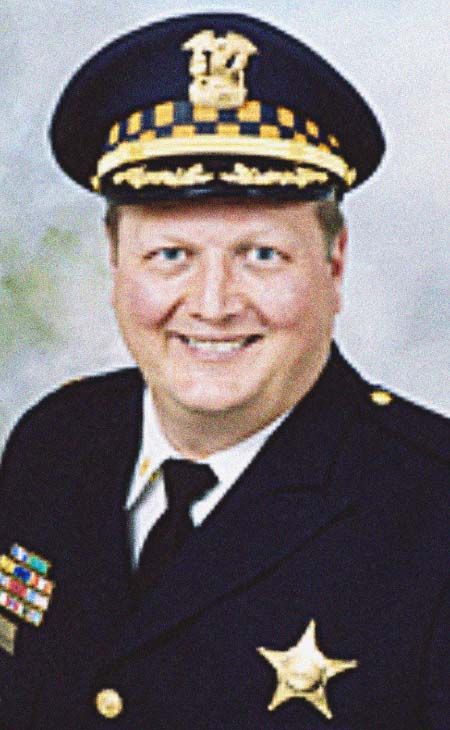Chicago’s International Expert on Policing
If there’s one thing that can be said about former Chicago Police Department commander Elias Voulgaris (M.P.A. ’15) and his experience on the force, it’s this: It is broad, and ubiquitous.
In his 35 years with the department, he worked in Chicago’s North and South sides, in narcotics and within the targeted response unit, and with a rank that went all the way from patrolman to commander. Just before retiring in 2019 while working in evidence and recovered property, he also served as the department’s liaison for Chicago’s Office of Emergency Management and Communications.
With that wide swath of experience, there is perhaps little wonder that the International Criminal Court (ICC) at The Hague, Netherlands, has chosen him as an expert witness, to offer his insights on police policy and practices during their proceedings. He is the only law enforcement official from the United States in such a position.
The ICC investigates and tries individuals charged with, according to their website, “the gravest crimes of concern to the international community: genocide, war crimes, crimes against humanity, and the crime of aggression.”
Although the U.S. does not recognize the ICC’s authority, Voulgaris says that’s no reason for them not to receive the benefit of his experience in policing. It’s not the first time that Voulgaris has advised internationally. He previously helped to train police forces in the United Kingdom.
It was during his time training officers in Kent, England, that he saw an advertisement in a local law enforcement newsletter about how The Hague was looking for expert witnesses for the ICC. He immediately applied. After a two-year application process, he was approved in February 2024 for a period of five years, with the potential for renewal.
Though he has yet to be called upon by the ICC as of July, he notes that the ICC “mostly deals with corruption amongst international governments, which wouldn’t be my purview. But I could assist with the U.N. policing and things of that nature. I’m here for them.”
Born and raised in Chicago, the son of a baker and a factory line worker, Voulgaris feels that when it comes to the daily work of policing, officers often don’t get enough credit. He himself was honored by the National Alliance on Mental Illness for his work as a crisis intervention officer, and has pushed for training officers in crisis intervention when working with people undergoing mental health emergencies.
He also established a citywide homeless outreach team, and, when working in the city’s 17th District, which includes Chicago’s Albany Park neighborhood, he established a Hispanic community outreach team. He created liaison officers for proactive outreach to the Jewish, Arab, Middle Eastern, Muslim, Korean, Somalian, Polish, and LGBTQ+ communities there as well.
In 1994 he also founded and became president of the Hellenic American Police Association, representing officers of Greek and Cypriot heritage in Chicago.
“I don’t think people realize the dedication of the majority of officers to serving and protecting,” Voulgaris says. “I saw officers do things above and beyond. In one instance, a baby was thrown out a window and was deceased. The officers, out of their own pocket, paid for the funeral.
“Unfortunately the publicity of bad cops, which none of us want, takes precedence over the good officers do on a daily basis,” Voulgaris says.


